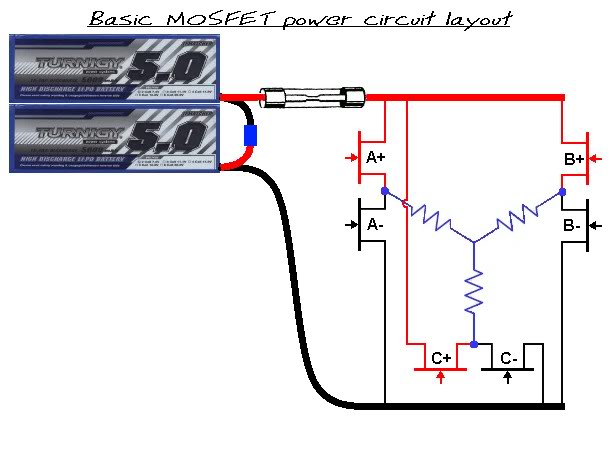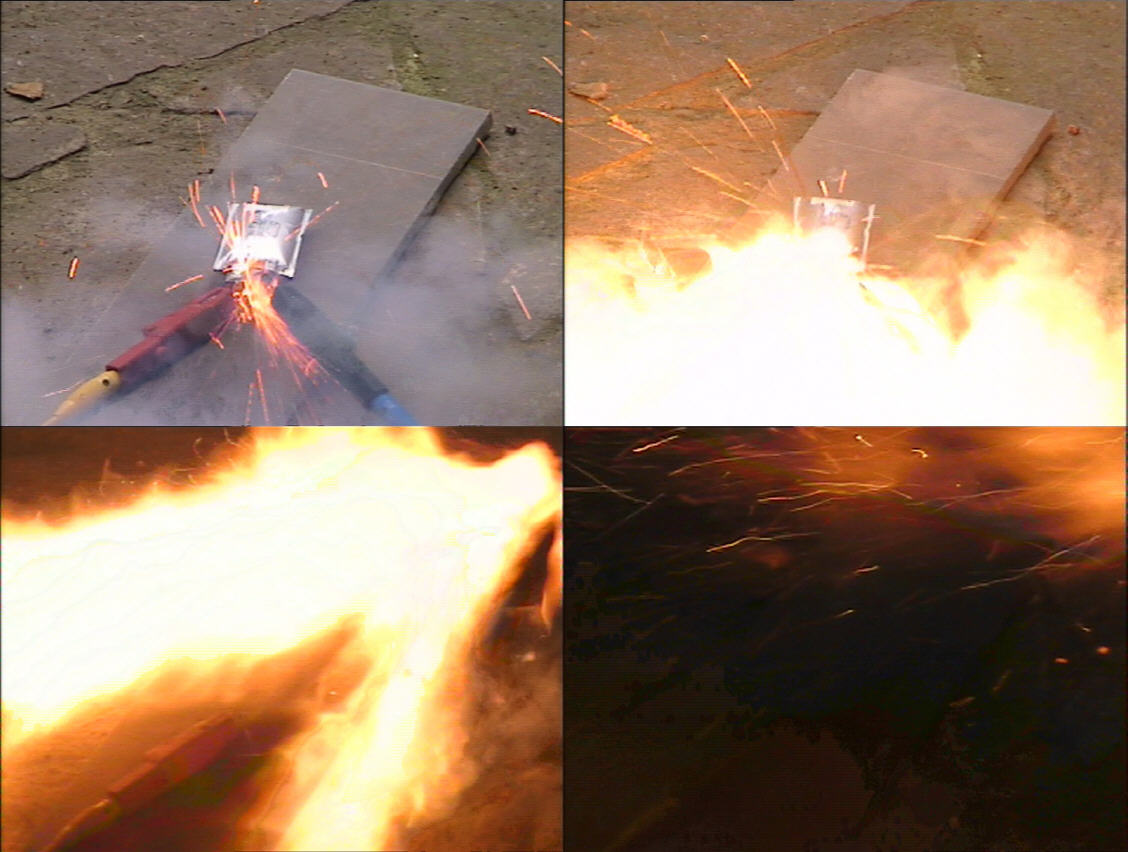It's difficult to say what actually caused the failure, but I suspect that either two
(or more) of the six
MOSFETs have somehow short-circuited internally, or the chip that controls them has caused them to stay permanently closed simultaneously.
If one was on the positive switching side
A+ and another on the negative switching side
C-, this would result in the full battery voltage being put directly through two of the three sets of windings. This would produce enough electromagnetic force to quickly stop the wheel, especially if
B+ or
B- was also switched.

Without any form of battery protection
(Fuse, trip switch or BMS etc.), if two
MOSFETs on the same phase wire were somehow switched
(or short-circuited) at the same time
(for example A+ and A-), this would instantly produce a complete short-circuit directly across the battery wires, drawing maximum current from the
LiPo pack, which would instantly burn out the tracks on the circuit board, presumably accompanied by a very loud bang from the controller.

I don't know if a faulty hall sensor could cause this sort of failure, but I wouldn't completely rule out the possibility.
Reverse should have no effect. At least in my situation. If I hit the reverse button by mistake when riding it just stops the motor and I have to stop and then go in reverse just for a second before it will go forward again.
If reverse was enabled and the "Immediate" option had been selected from within the programmable options, I would have thought that there is a strong chance that some components could be put under tremendous strain if reverse was accidentally selected at speed with the throttle open. It would be like rolling backwards downhill at speed and then trying to stop by opening the throttle instead of using your brakes.
I would strongly recommend that anyone using
LiPo packs, or similar packs without any form of inbuilt current regulation, should include either a simple fuse, or some form of current sensed circuit breaking device, to protect the battery
and controller from severe damage, should a short-circuit fault occur, regardless of how it may have been caused!
Once a short-circuit has occurred, if your controller doesn't blow itself up
(creating an open circuit), there's a very real chance that your
LiPo pack can actually explode into flames!


Click the picture to see it full size.
Please notice that the above pictures are of one single cell, so just imagine what a whole pack exploding would be like.







Now ask yourself which you would prefer; a blown fuse? or a blown controller and/or an exploding battery pack? The choice is yours!
Alan